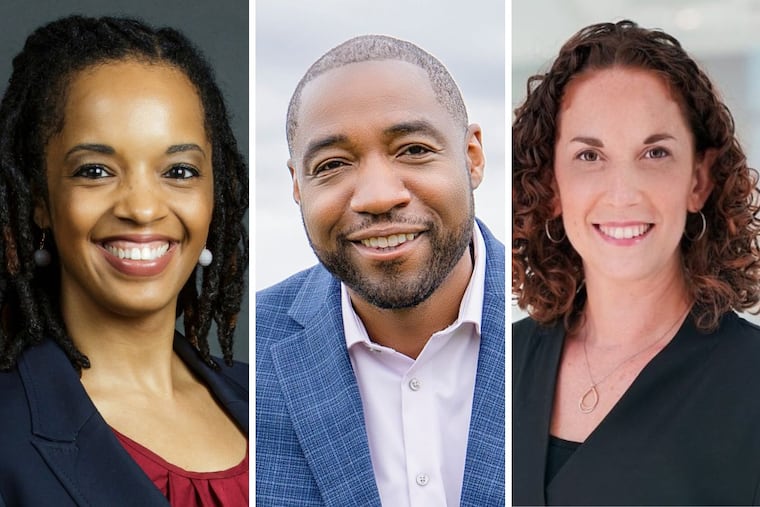What should business owners look for in a diversity educator? Philly experts share their tips.
DEI education is now a $9 billion industry, but before you choose someone to talk to your staff, make sure you get an expert and not a newcomer.

Employers are more eager than ever for diversity education.
“Business leaders can no longer dismiss racial and social injustice as problems outside of the workplace, yet so many well-intentioned employees and managers don’t know how to address them,” said Stephanie Creary, assistant professor of management at the Wharton School.
A common acronym for this type of training is DEI — diversity, equity and inclusion. The work touches on a broad range of cultural and management topics, including cultural celebrations around heritage months, staff discussions on how to avoid pitfalls (such as things not to say in meetings), as well as mentoring, recruiting, employee retention, and employee affinity groups, according to DiversityInc., a longtime national consulting firm.
The market for DEI, estimated at $9.3 billion in 2022, is expected to grow to more than $15 billion by 2026, as everyone from Corporate America to small-business owners holds conversations about unconscious bias, racial inequity, and pay gaps.
But careful vetting is required. The industry has been around for decades, but after 2020, many newcomers hung out a shingle and dubbed themselves diversity experts.
“All of a sudden, anyone who had a passion for justice decided to form a side hustle consulting company,” Creary said. “Employers were scrambling for those folks.”
She hears from companies after they hire “new people I’ve never heard of before. The clients often say, ‘They sounded good, but they lacked a track record.’ Then they call me.”
The business case for diversity in the workplace has long been well-documented. Companies with diverse workforces are 35% more likely to experience greater financial returns than their respective non-diverse counterparts, and companies with greater diversity are 70% more likely to capture new markets, according to Harvard Business Review. Consulting giants such as McKinsey and Deloitte have set up think tanks around DEI.
If you’re hiring to help your business navigate issues of diversity, equity and inclusion, consider these expert tips:
Experience matters. “If the people you’re hiring don’t have a years-long track record in DEI, then they can’t turn the ship around,” Creary advised.
A DEI “expert” who’s been in business only since 2020? Avoid them, Creary said.
Start with changes to language. “When I hear that a company needs to do diversity training, I think, ‘You train seals and dogs — not people.’ This is education,” said Ken Shropshire, adviser to Wharton School dean Erika James.
It takes time. “Equity is a big deal at a law firm” because equity partners earn part of the firm’s profits every year as part of the pay package, said Virginia Essandoh, hired by Ballard Spahr law firm in Center City as director of diversity, equity and inclusion in 2008, and promoted in 2011 to chief diversity, equity, and inclusion officer.
“We decided we wouldn’t use the word [equity] if we didn’t mean it. We studied what equity would mean for Ballard,” she said. It took a year to study how partners are named, performance versus potential, and who produced what in the years after being made partner.
Learn what your staffers want. The DEI business “got really supercharged after George Floyd’s death,” said Christopher “C.J.” Gross, an educator on diversity. “And employees are demanding it of their leaders,” he said. “Millennials are driving these initiatives at work, and surprisingly, so are the older white men who mentored marginalized people in their workplaces.” A former GE engineer, he teaches at the University of Maryland and consults at private companies.
“Employees aren’t satisfied by a tweet saying ‘We support Black Lives Matter.’ They’re asking, ‘What are you going to do internally?’ They want transparency about the strategy, about wage gaps, promotion gaps. Workers are more sophisticated,” said Leora Eisenstadt, associate professor and director, Center for Ethics, Diversity, and Workplace Culture, which will offer DEI certification programs to industry and alums of Temple’s Fox School of Business.
Have questions ready when vetting DEI educators. Essandoh recommends asking tons of questions before hiring any DEI consultants. Do they have a track record? How long have they been in the business? Do they come with references?
Ask for advice from trusted colleagues. Often, corporate clients lean on Essandoh for advice on diversifying their suppliers and vendors.
Creary has a go-to list of contacts, some with Philly ties. She recommends Quinetta Roberson at Michigan State, who was a longtime professor at Villanova University; Oscar Holmes, at Rutgers-Camden, who now consults; and Sulaiman Rahman, who is the CEO of DiverseForce staffing firm..
Seek out a certification that prioritizes live conversation and education. DEI certification programs are a massive growth area for universities and training companies that have sprung up in the last five years. The University of Pennsylvania, Cornell Diversity and Inclusion, Diversity Executive Leadership Academy, Society for Diversity, Institute for Diversity Certification, and Georgetown University all offer DEI certifications.
But face-to-face workshops and certification programs, whether online or in person, are more legitimate than passive lectures or self-directed online courses, said Eisenstadt.
“You have to talk about this stuff to fix it. You can’t just passively absorb and make changes to yourself, or just sit with it alone.”